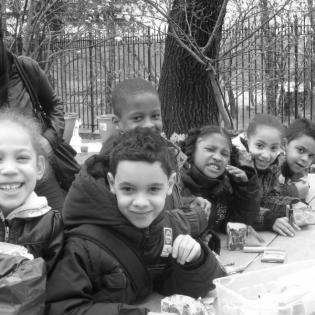Words Can Hurt
In this lesson, we define stereotype as a mistaken generalization about a group of people and raise awareness of ways to advocate for inclusion and kindness.
- define the term stereotype as a mistaken generalization of a group of people.
- define advocate as one who stands up for something that one believes in.
Instructions
Anticipatory Set:
Ask how it feels when it is assumed that some colors, toys, or activities are assigned to a gender, such as pink for girls and football for boys. Discuss how ideas are formed and then how they are proven wrong.
Label this thinking as stereotyping. A stereotype is a simple, often mistaken generalization about a group of people. Stereotypes may be positive or negative but all are unfair and misleading, usually based on a small example that is applied to a whole group.
Share the following phrases with the learners. After each phrase is read, ask the learners to raise their hand if they think the phrase sounds like a stereotype and why (all of the phrases are stereotypes or are based on stereotypes).
- People from southern United States like fried chicken.
- He throws like a girl.
- All people from Asia are smartand good in math and science.
- People who come to the U.S. from foreign countries and don't learn English are lazy.
- People who have dark hair, dark beards and dark eyebrows are criminals.
- All baby boys wear blue.
- Boys that cry are weak.
Discuss what makes these phrases misleading and unfair. Discuss what effects stereotyping can have on the school, the community and the global community.
Have the learners suggest ways that we can avoid or eliminate stereotypes and wrongful judgments. It is important to think before making a judgment. It is okay to call people in for repeating harmful language and ideas.
For example: If someone tells a racist joke, don't laugh. Instead, say, "Please don't tell those kinds of jokes. They are destructive to people and communities."
Remind them that Dr. King believed that all people should be "judged by the content of their character." He believed that everyone should have the opportunity to achieve their potential, not be held back by racism or misguided ideas.
Scenario: You and a friend are having a conversation about sports. Your friend makes one of the following comments: "He throws like a girl." or "She can't play football because she's a girl." Choose one and write how you would respond. How would you let your friend know that it isn't fair to put people into groups just because they are a boy or a girl?
The young people make a plan to prioritize inclusion and fair treatment of others in the classroom and community.
Philanthropy Framework
-
Strand PHIL.II Philanthropy and Civil Society
-
Standard PCS 01. Self, citizenship, and society
-
Benchmark E.1 Define the word <em>trust</em> and its role in all communities.
-
-
Standard PCS 07. Skills of Civic Engagement
-
Benchmark E.2 Discuss an issue affecting the common good in the classroom or school and demonstrate respect and courtesy for differing opinions.
-
-
